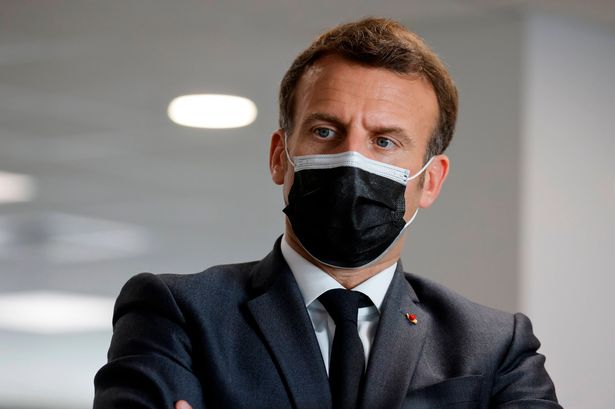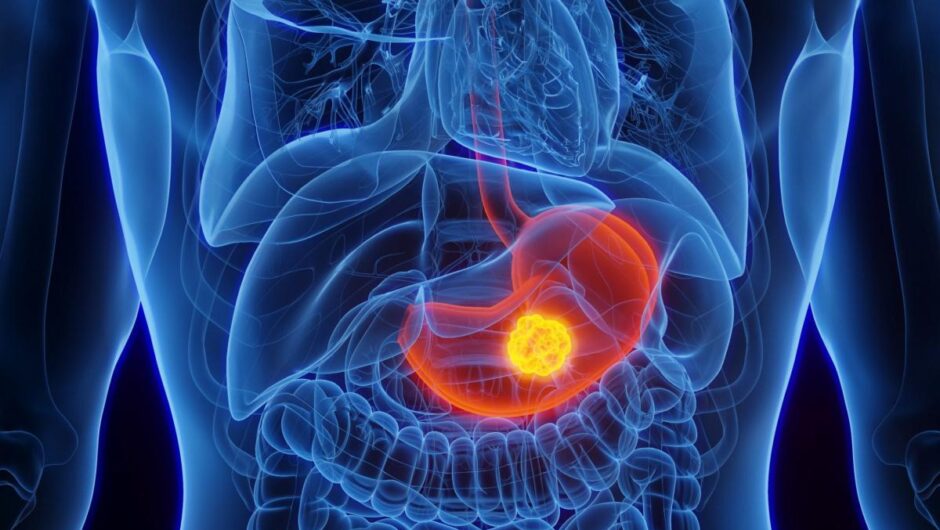[ad_1]
An increasing number of coronavirus cases and slow rollout of vaccinations across Europe is causing concern.
Last week saw increasing transmission of Covid-19 in the majority of countries in the World Health Organisation (WHO) European region with 1.6m new cases and close to 24,000 deaths. The region remains the second most-affected by coronvirus of all the world’s regions with the total number of deaths fast approaching a million and the total number of cases about to surpass 45m.
Dr Dorit Nitzan, regional emergency director for the WHO regional office for Europe, said: “Only five weeks ago the weekly number of new cases in Europe had dipped to under one million but now the region’s situation is more worrying than we have seen in several months.
“There are risks associated with the increased mobility and gatherings over the religious holidays. Many countries are introducing new measures that are necessary and everyone should follow as much as they can.”
Across the region 50 countries or territories have reported the what is now known as the Kent variant. As this variant is more transmissible and can increase the risk of hospitalisation it has a greater public health impact and additional actions are required to control it.
At the European regional level new cases are increasing in every age group except in people 80 years and older. It is only in this most vulnerable population that there has been a steady decline in cases and a decreasing proportion of Covid-19 deaths since the beginning of 2021 reflecting early signs of the impact of vaccination.
New data from Public Health England suggest that Covid-19 vaccines have saved, at the very least, more than 6,000 lives among people over 70 in England since vaccination started in December 2020. Similarly data from Israel shows that the Pfizer–BioNTech vaccine is around 90% effective at preventing infection, severe disease, and hospitalisation after the second dose.
Dr Hans Henri P. Kluge, WHO regional director for Europe, said: “Vaccines present our best way out of this pandemic. Not only do they work, they are also highly effective in preventing infection.
“However the rollout of these vaccines is unacceptably slow. And as long as coverage remains low we need to apply the same public health and social measures as we have in the past to compensate for delayed schedules. Let me be clear: we must speed up the process by ramping up manufacturing, reducing barriers to administering vaccines, and using every single vial we have in stock now.”
To date only 10% of Europe’s total population has received one vaccine dose and just 4% has completed a full vaccine series.
“The risk of ongoing vaccination providing a false sense of security to authorities and the public alike is considerable – and that carries a danger,” Dr Kluge explained.
A total of 27 countries in the region are in partial or full nationwide lockdown with 21 imposing nighttime curfews. In the past two weeks 23 countries have intensified restrictions while 13 have eased measures, with an additional nine to follow suit.
Here is the situation in some of the countries in the EU:
France
France’s prime minister has defended new nationwide measures to combat a resurgent coronavirus that include closing schools for at least three weeks and putting in place a month-long domestic travel ban.
Prime Minister Jean Castex said the government has acted “consistently and pragmatically”.
The National Assembly, France’s lower house, voted to approve the new measures on Thursday by 34 to nine after opposition parties boycotted the vote en masse.
French president Emmanuel Macron, in a televised address to the nation on Wednesday night, said the measures were needed as “the epidemic is accelerating”.
“We’re going to close nursery, elementary, and high schools for three weeks,” he said, in addition to a nationwide 7pm to 6am curfew that will remain in place alongside domestic travel restrictions.
The move is a departure from the government’s policy in recent months which has focused on regionalised restrictions.
School closures in particular had been seen as a very last resort.
Read More
Related Articles
Read More
Related Articles
Germany
There has been concern in the country about the slow place of the vaccination programme with only 11% of the population having received at least one dose compared with more than 50% in the UK, 29% in the US, and 60% in Israel.
German health officials are restricting the use of AstraZeneca’s coronavirus vaccine in people under the age of 60 amid fresh concern over unusual blood clots reported in a tiny number of those who received the jabs.
There is also frustration about the inconsistencies in policies. Germans are baffled at why some of them can take holidays in the Balearic island of Mallorca over Easter while those stuck at home aren’t allowed to visit local camping sites or holiday cottages.
Restaurants, theatres, and gyms in the country have been closed since November, and most shops since December, and the rapid spread of the Kent variant has put back any plans that restrictions might be lifted soon.
Spain
Spain’s Madrid region has halted Covid-19 vaccinations at health centres for four days so medical staff can rest over the Easter holiday despite pleas from the national government not to halt the fight against surging infections.
The shutdown came as the country scrambles to make up for lost time in its national vaccination plan due to supply shortfalls.
Health minister Carolina Darias last week urged regional authorities to keep vaccinating over the Easter break, saying it was “very important” to keep up the inoculation programme.
Spain, like other European Union nations, has had a surprisingly slow vaccine rollout that authorities blame on vaccine shortages.
In response to criticism from political opponents, which came about a month before a regional election, the Madrid regional government said its health centres stepped up vaccinations earlier this week to compensate for the closures.
It also noted that vaccine shots will still be administered at a city hospital and a city football stadium over the traditional Easter break.
Spain’s 16 other regions were reported to be administering vaccines as normal.
As of Thursday Spain had fully vaccinated 2.6m people, or almost 10% of a target group of 27.4m that the government aims to inoculate by the end of September.
Spain has seen more than 75,000 deaths in the pandemic and the daily number of new Covid-19 infections has edged higher in recent weeks.
It has now surpassed what authorities consider the high-risk threshold of 150 infections per 100,000 inhabitants over 14 days.
Ms Darias pleaded with people to be cautious over Easter, saying Spain needed to buy time to vaccinate people before a possible new surge in cases.
Belgium
Clashes between Belgian police and a large crowd in one of Brussels’ biggest parks left several people injured after revellers gathered for an unauthorised event despite coronavirus restrictions.
Brussels police spokeswoman Ilse Van de keere said 22 people were arrested and several police officers were injured. She said eight revellers were wounded including two who were taken to hospital.
Clashes started after police ordered the crowd to disperse toward the end of the afternoon.
The festival, dubbed “La Boum” or “the party”, had been advertised on social media and police warned that it was a fake event on April Fool’s Day.
According to Brussels police up to 2,000 people still showed up in the Bois de la Cambre to attend.
Police use a water cannon during protests at a park in Brussels
(Image: AP Photo/Olivier Matthys)
Large crowds have been gathering in Brussels’ parks this week to enjoy the unusually sunny weather despite coronavirus restrictions limiting outside gatherings to four people.
Belgium has reported over 882,000 confirmed coronavirus cases and more than 23,000 virus-related deaths.
Hospital admissions due to Covid-19 have risen in recent weeks and health authorities have warned that intensive care units could reach a critical level by April 10 if the pace of new infections does not slow down.
Belgium’s current virus restrictions include a night-time curfew and a ban on non-essential international travel.
[ad_2]
Source link



